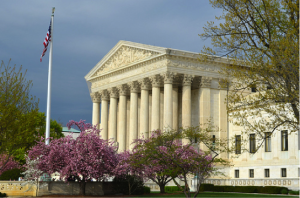 Gay marriage.
Gay marriage.
The mere mention of that phrase stirs strong passions among advocates on both sides of the issue.
As a divorce attorney in Charleston, SC, I have followed the issue closely because it could dramatically affect family law in the Lowcountry – as it has done already in many states and the District of Columbia. Historically, marriage has been defined exclusively as the union between a man and a woman. However, many states now recognize gay marriage as a consequence of the passage of new laws or court decisions.
We are moving closer and closer to a point where same-sex marriage will be legalized in South Carolina. However, for now, the residents of South Carolina retain the right to determine whether gay marriage will be allowed in our state.
A year ago, the U.S. Supreme Court declared California’s ban on gay marriage unconstitutional as well as the Defense of Marriage Act (DOMA) on narrow grounds based largely on the Federal Tax Code. You can read more about the decision on my blog here.
Around that same time, a gay couple filed a lawsuit (Bradacs v. Haley) with the U.S. District Court in Columbia, SC. The couple is challenging the constitutionality of South Carolina’s law regarding gay marriage. The couple married previously in the District of Columbia, where gay marriage is legal. However, as current residents of South Carolina, their gay marriage is not recognized under the South Carolina Constitution. The gay couple has sued the Governor and the State of South Carolina to try to force the State to legally recognize their gay marriage. You can read here a copy of the lawsuit, which they filed at the Federal District Court.
On October 9, 2014, the Supreme Court of South Carolina issued an order saying that no marriage licenses may be issued to same-sex couples until the Federal District Court reaches a decision on the Bradacs v. Haley case. A decision in the Bradacs v. Haley case should be issued within the next year, if not sooner.
The Federal District Court Judge in Columbia is required to follow decisions issued by the U.S. Court of Appeals for the Fourth Circuit. Previously, the judges for the Fourth Circuit found in Bostic v. Schaefer that Virginia’s ban on gay marriage was unconstitutional. South Carolina’s gay marriage ban will likely be struck down unless our Attorney General can persuade the Judge in Columbia that: (1) the Fourth Circuit decision is not binding on South Carolina; and (2) South Carolina’s gay marriage ban does not violate the U.S. Constitution.
As this case winds its way through our courts, I will write again on gay marriage. For now, gay marriage is not permitted in South Carolina and gay marriages from other states and the District of Columbia are not recognized in our state. However, the law may soon change if the Federal Judge rules in the Bradacs v. Haley case that South Carolina’s gay marriage ban is unconstitutional.